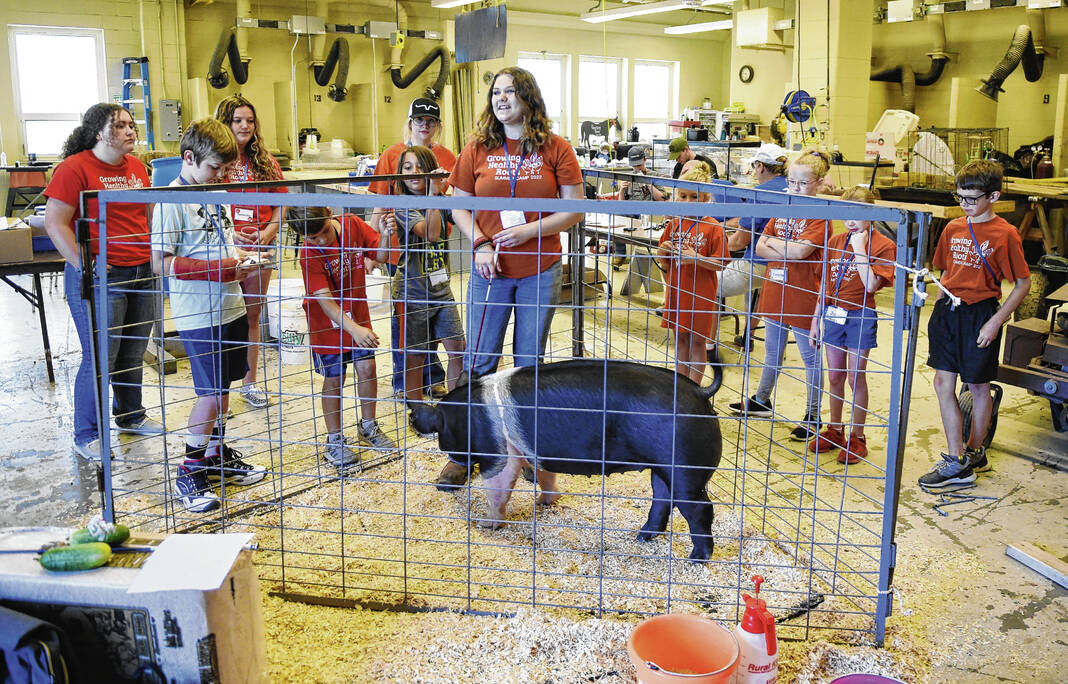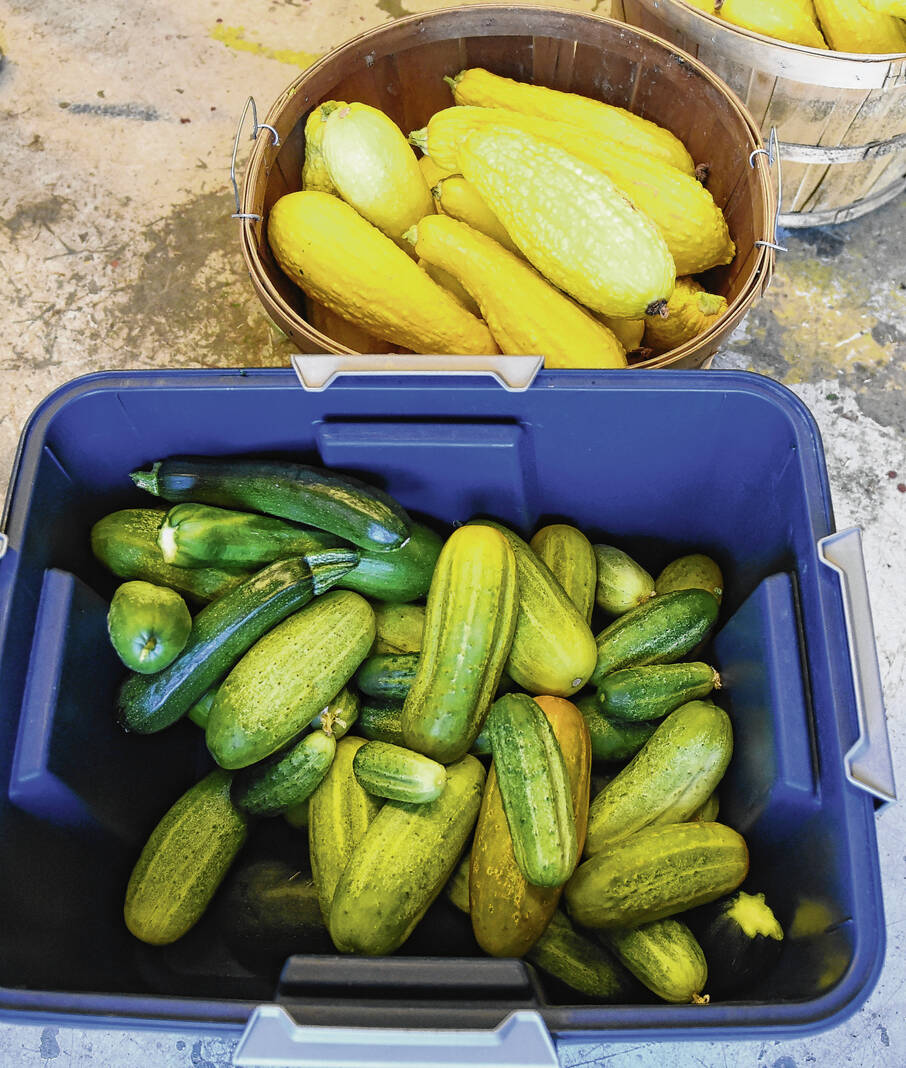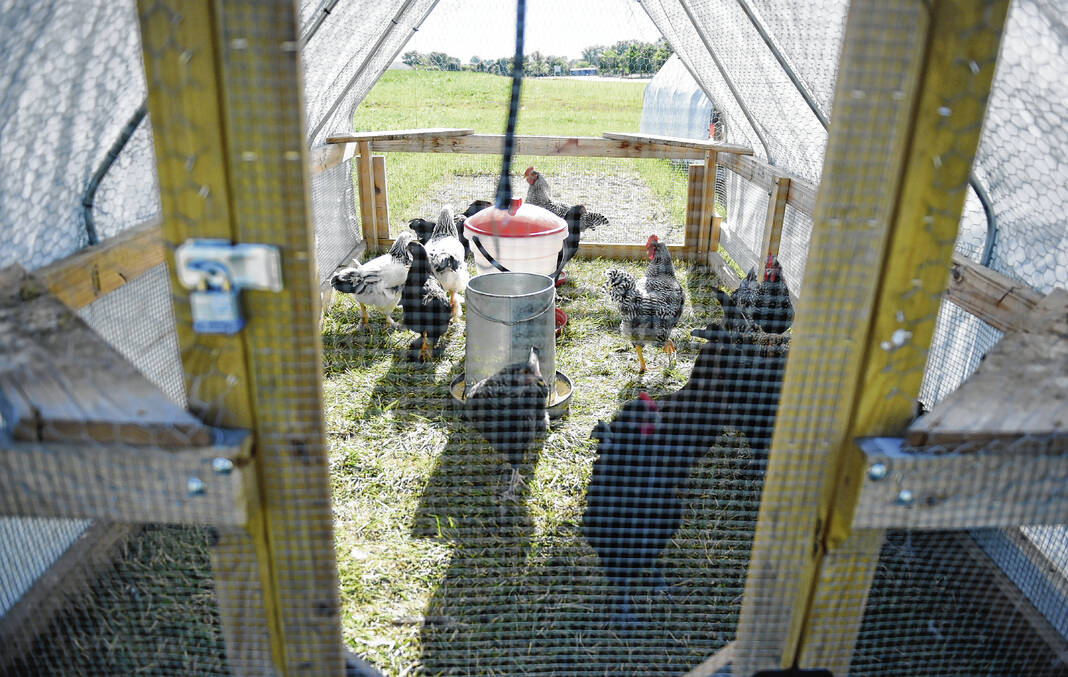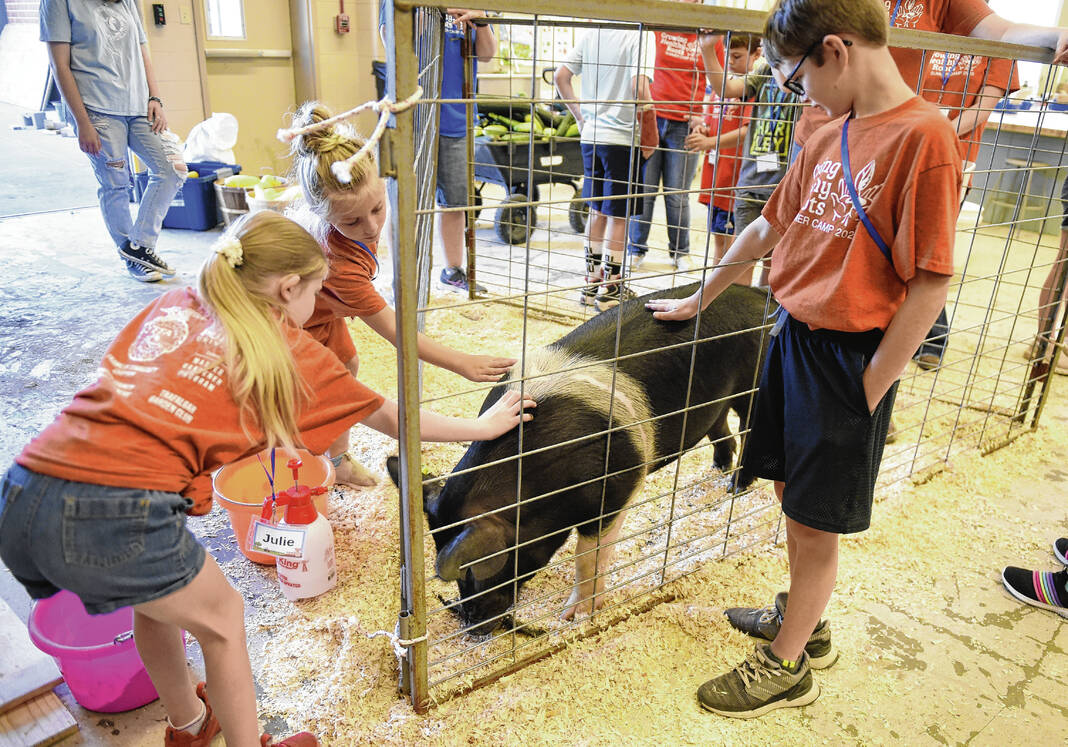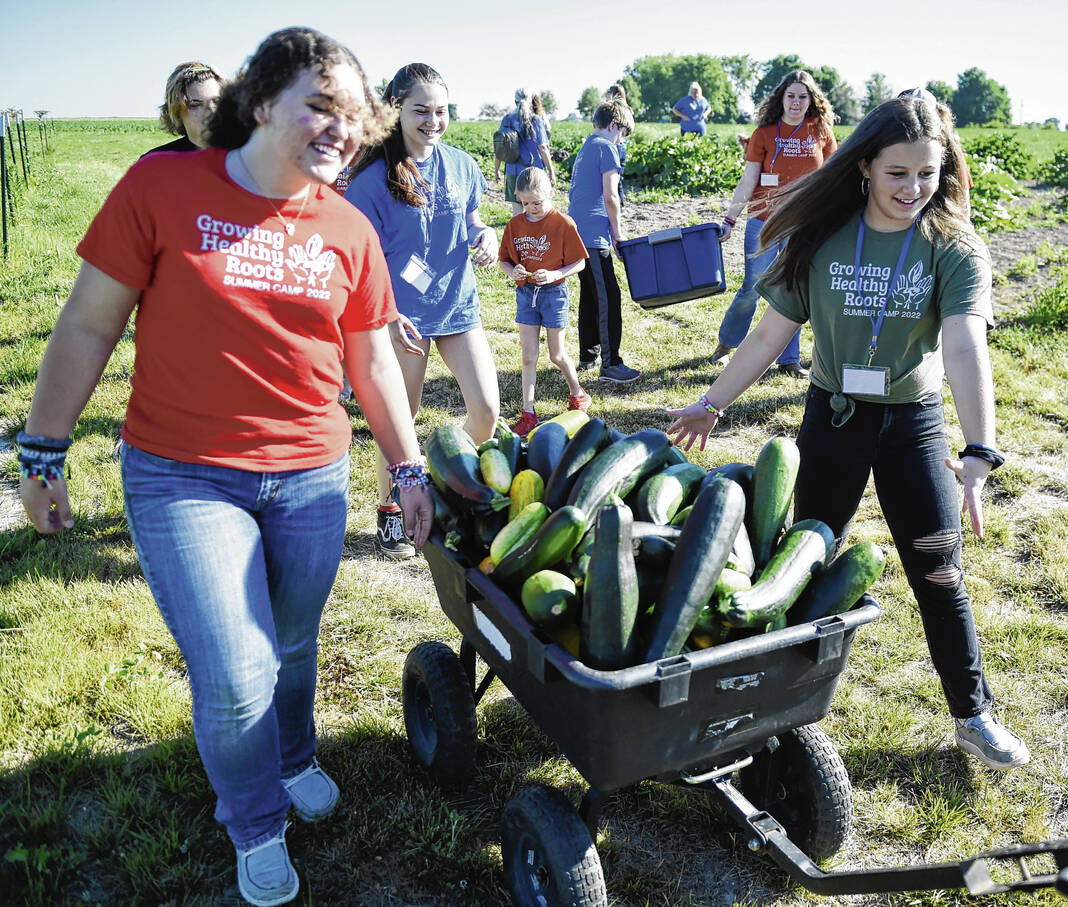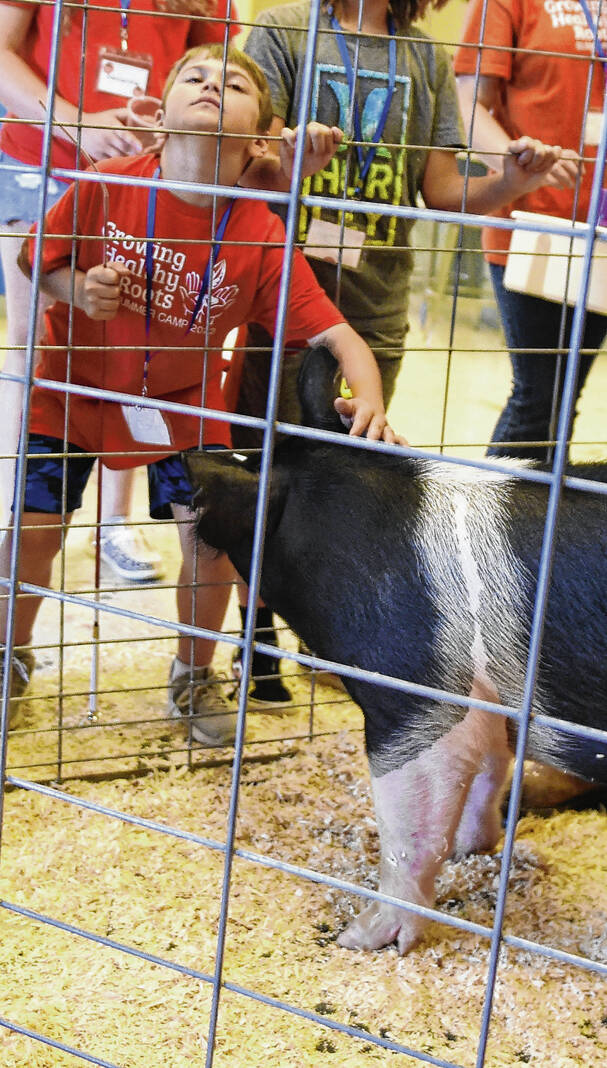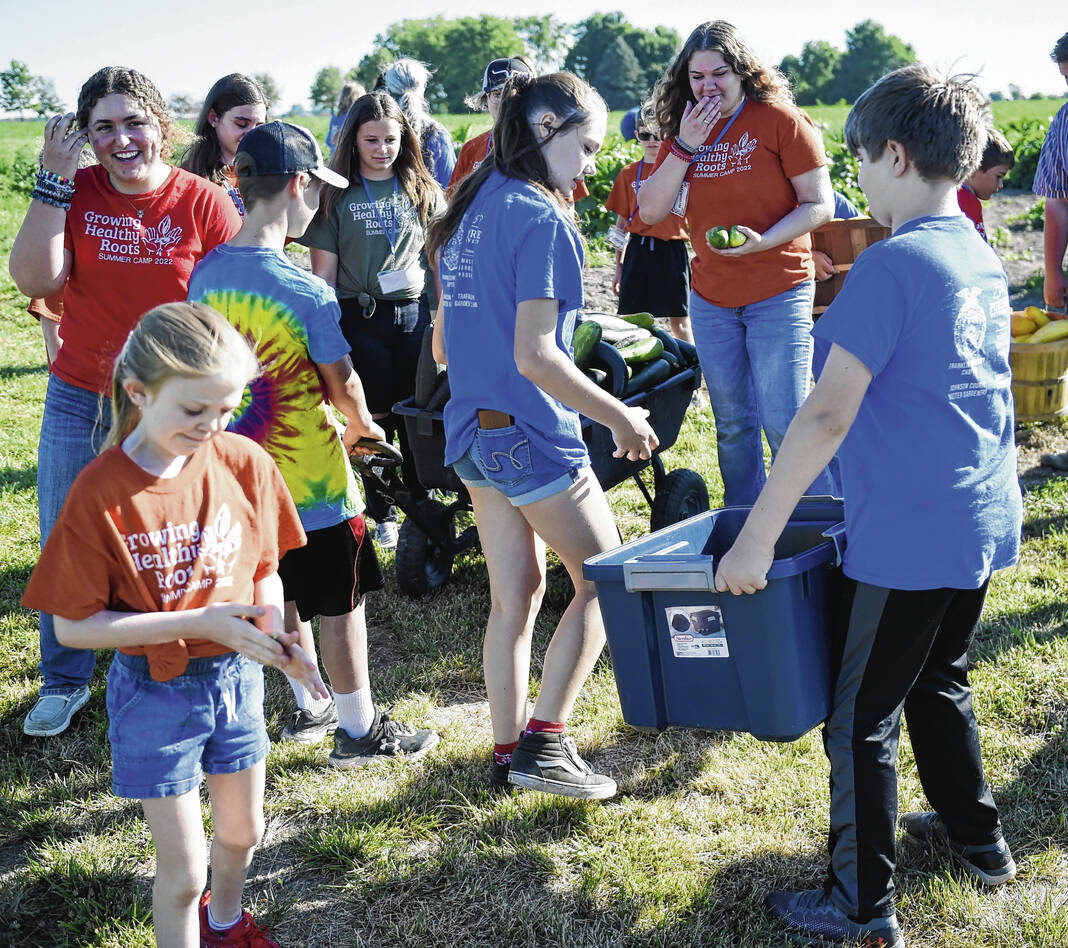In a matter of minutes, the wheeled cart and plastic baskets were filled to overflowing with massive green zucchini, bright yellow squash and thick cucumbers.
The kids of the Growing Healthy Roots Summer Camp kept bringing the veggies by the armful. They stalked through the FFA vegetable patch behind Franklin Community High School, picking the ripe ones and leaving smaller ones to develop.
For many of the children, this was their first experience with agriculture and seeing where food comes from. That was the whole goal of garden camp, said Alicia Geesey, FFA advisor at Franklin.
“I was incredibly lucky to grow up on a farm, so I had an understanding of where your food comes from at a young age. I really enjoy sharing that magic with the younger generation,” she said. “I think it’s really important and special to understand where the things you put in your body are coming from.”
This year’s garden camp is bigger and more comprehensive than ever before. Purdue Extension Johnson County, Franklin Community FFA, Johnson County Master Gardeners and Trafalgar Country Gardeners have teamed up to get kids digging in the dirt while learning about nature, livestock, growing food and all kinds of other topics.
“It’s important to educate the kids on gardening, on how food is produced, agriculture and other things,” said Sarah Hanson, director of Purdue Extension Johnson County. “Some of them come from backgrounds with farming or gardening, and they already understand it and have a passion for it. But some of them don’t, so it’s important they see and have an opportunity to learn things they otherwise wouldn’t be exposed to.”
The garden camp has been offered for years by Purdue Extension Johnson County, local master gardeners and Trafalgar Country Gardeners, a community group focused on activities such as maintaining the demonstration gardens at the Johnson County fairgrounds and providing free public talks by gardening experts throughout the year.
When it was created, the idea was to provide an educational camp for budding gardeners ages 8 to 12 to discover the science of plant development. Kids would learn about everything from dirt to plants to bugs, with programs built around those different topics.
With the camp’s established history, Geesey reached out to extension officials about partnering on a curriculum together.
“We have this big garden, and it could help us expand our program here as well,” she said.
Campers could take advantage of the huge plot of vegetables that the FFA plants and tends to throughout the summer. They could also see demonstrations with the chickens, goats, rabbits and other animals the FFA students work with.
During a recent camp day, the counselors brought in a pig, named Sally, to learn about their biology, behavior and how the animals are raised throughout the year.
“Each week, they get to learn about gardening, but the also get to learn about different livestock animals,” Geesey said.
The camp is held every Thursday over two months, so participants can see the plantings progress over the summer.
“Instead of doing a whole camp week, we held it once a week so they could really watch the garden grow,” Geesey said. “We really like the idea of the kids coming every week and seeing everything grow, getting to plant and harvest.”
Local master gardeners are still active in leading the camp, as they have in the past. But in a new twist, members of Franklin’s FFA program serve as counselors, interacting with the kids directly and sharing the knowledge they’ve gained during the time in agriculture.
Mady Norris, 15, wanted to help with the camp to share her love of agriculture with young people. She didn’t know much about farming for most of her life. Her mom had grown up on a farm, but Norris didn’t have that experience, until she was about 10 years old and allowed to raise a flock of chickens at their Franklin home.
After that, she was on a quest to learn more about agriculture. She hopes to help participants of the garden camp develop a similar passion.
“This was an opportunity to give kids what I wanted to begin with,” she said. “You can share your knowledge with younger kids. You don’t even need to be a big commercial farmer, just teaching the kids about the basics of agriculture and livestock, it helps them see how the world works and how they can give back to their community.
This year’s camp features about 20 participants, ranging in age from age 8 to 12. They’ve learned about topics such as environmental responsibility, the science of plant health and development, soil pests and garden-to-plate nutrition, among other topics.
Each camp day has been stocked with crafts, team-building activities such as weeding and tending to the garden, and snacks that the campers make themselves.
Through education and hands-on experience, organizers hope that the kids have a better understanding of food and farming, laying the foundation for nutrition habits that last long after the final camp day on July 21.
“You are more enticed to eat it if you grow it. If the kids plant it and harvest it, they get very excited about eating it, because they were a huge part of the process,” Geesey said. ” No matter how old you get, you never lose that magic of planting a seed in the ground and then two months later getting to harvest and eat it.”


